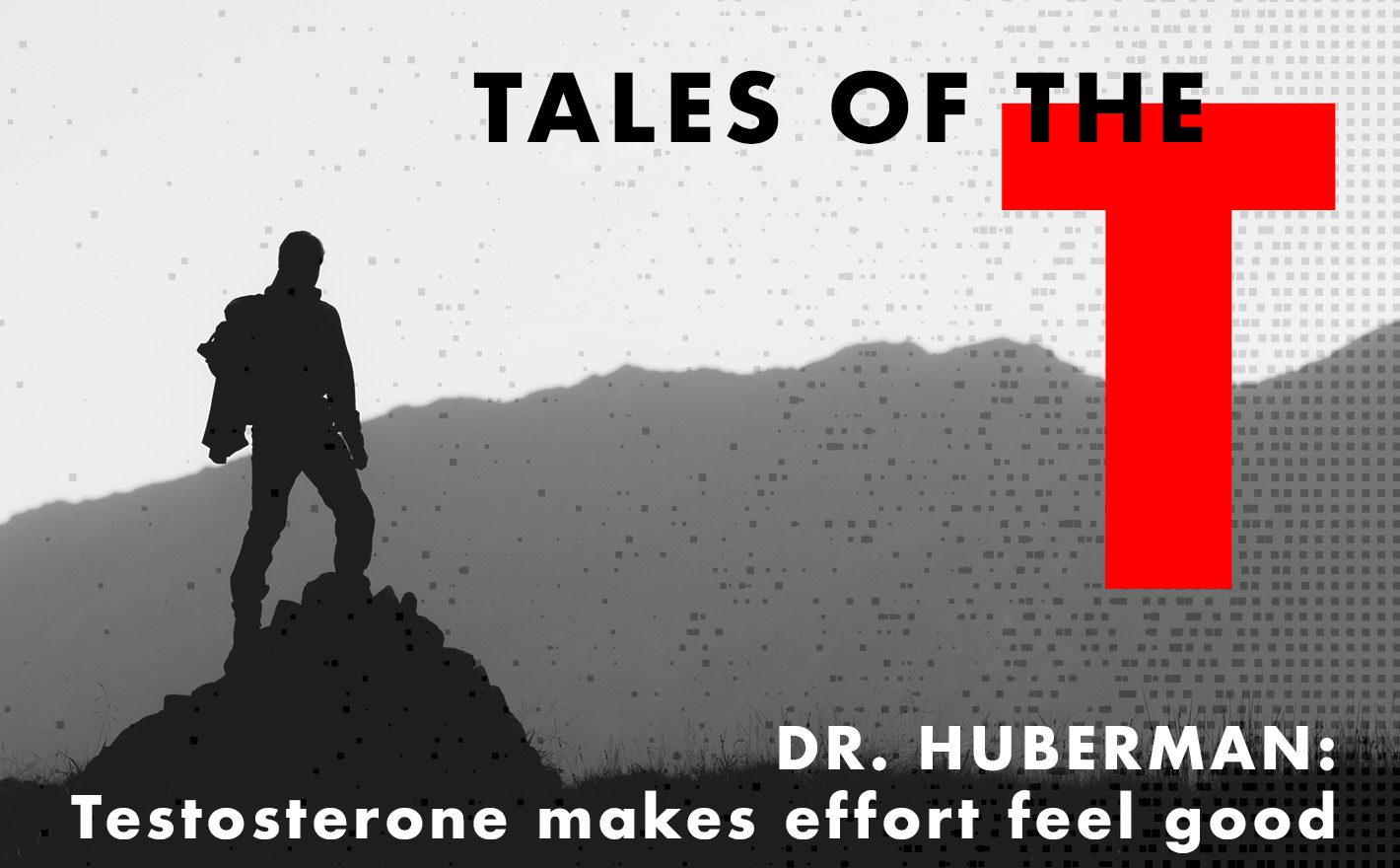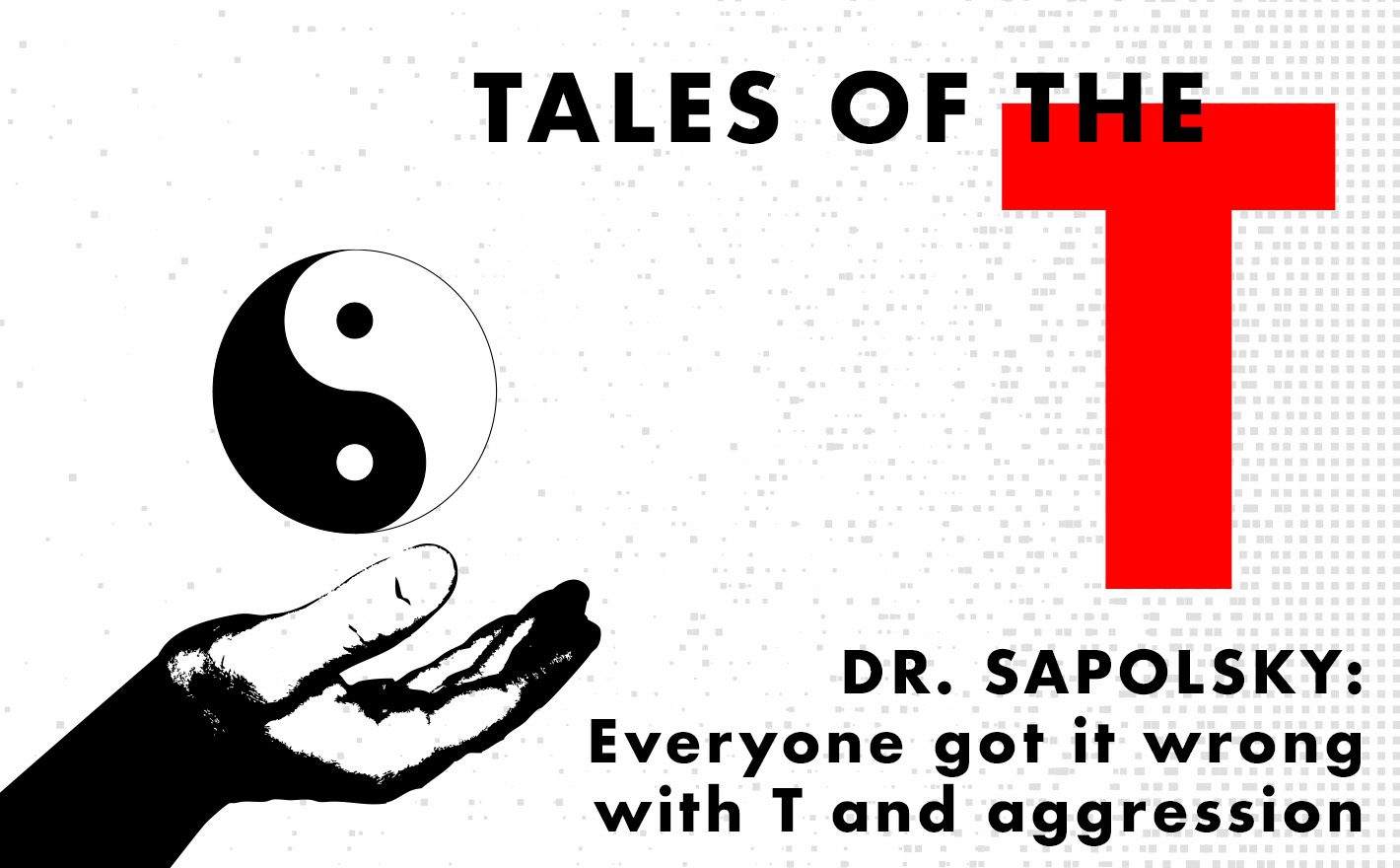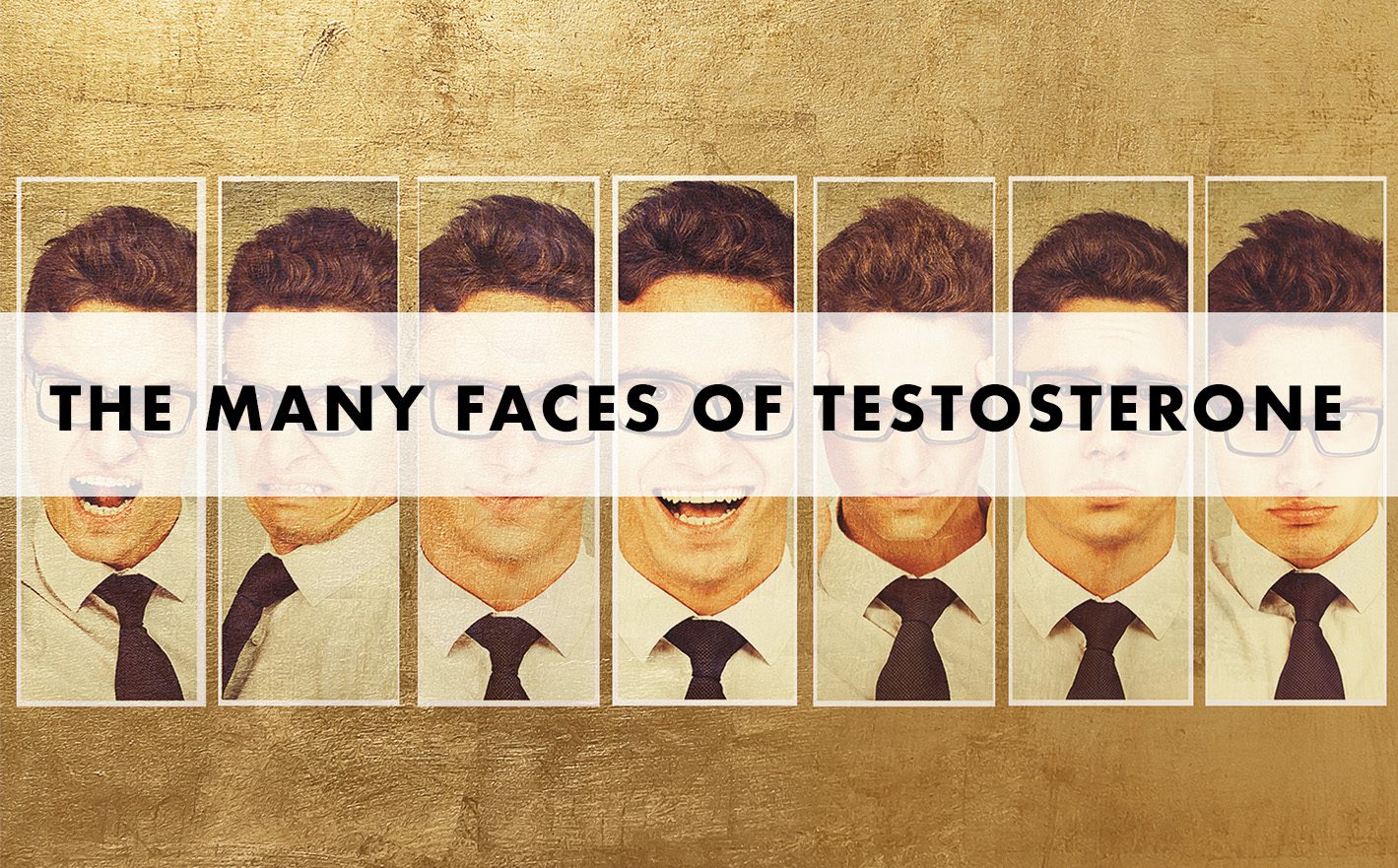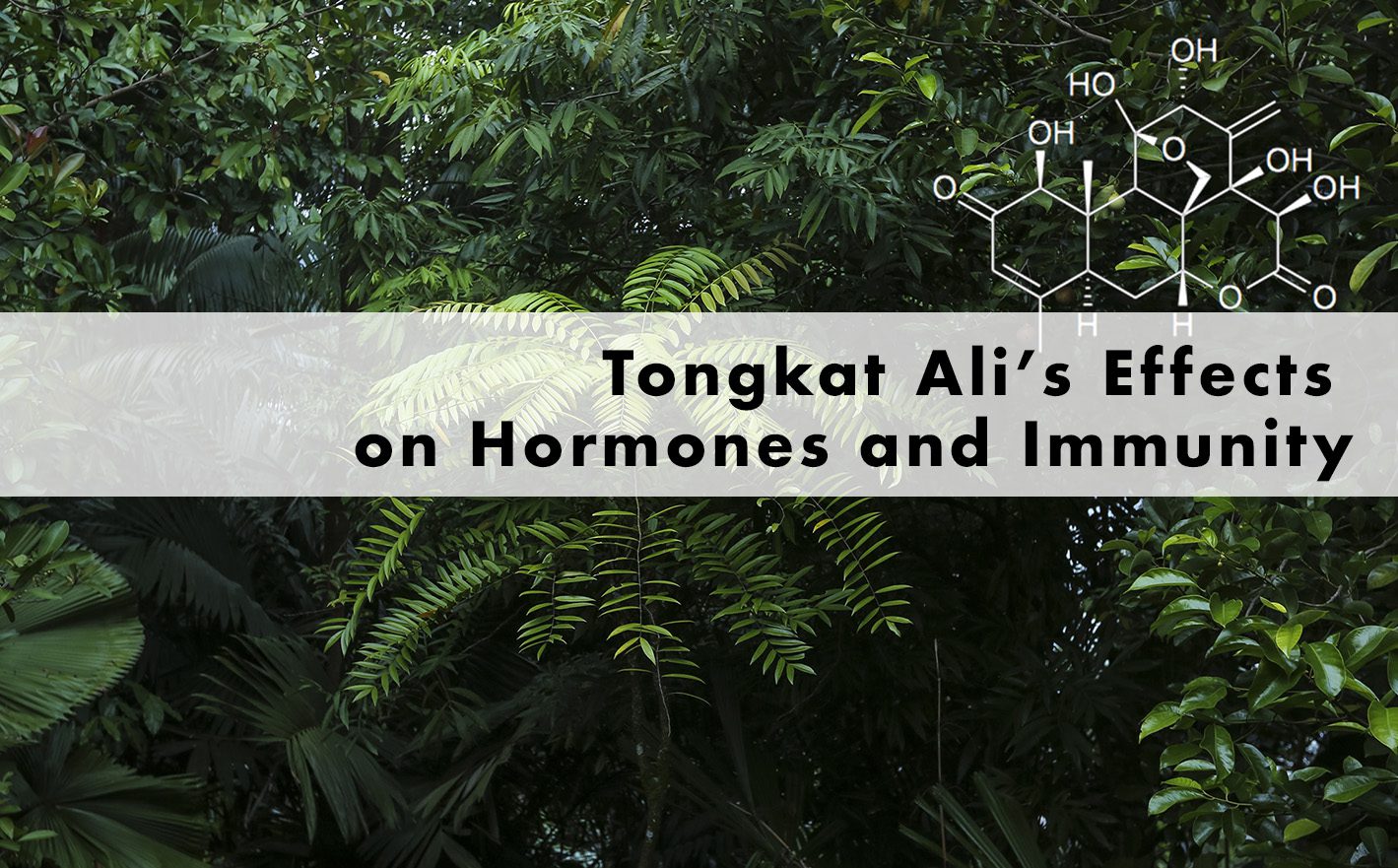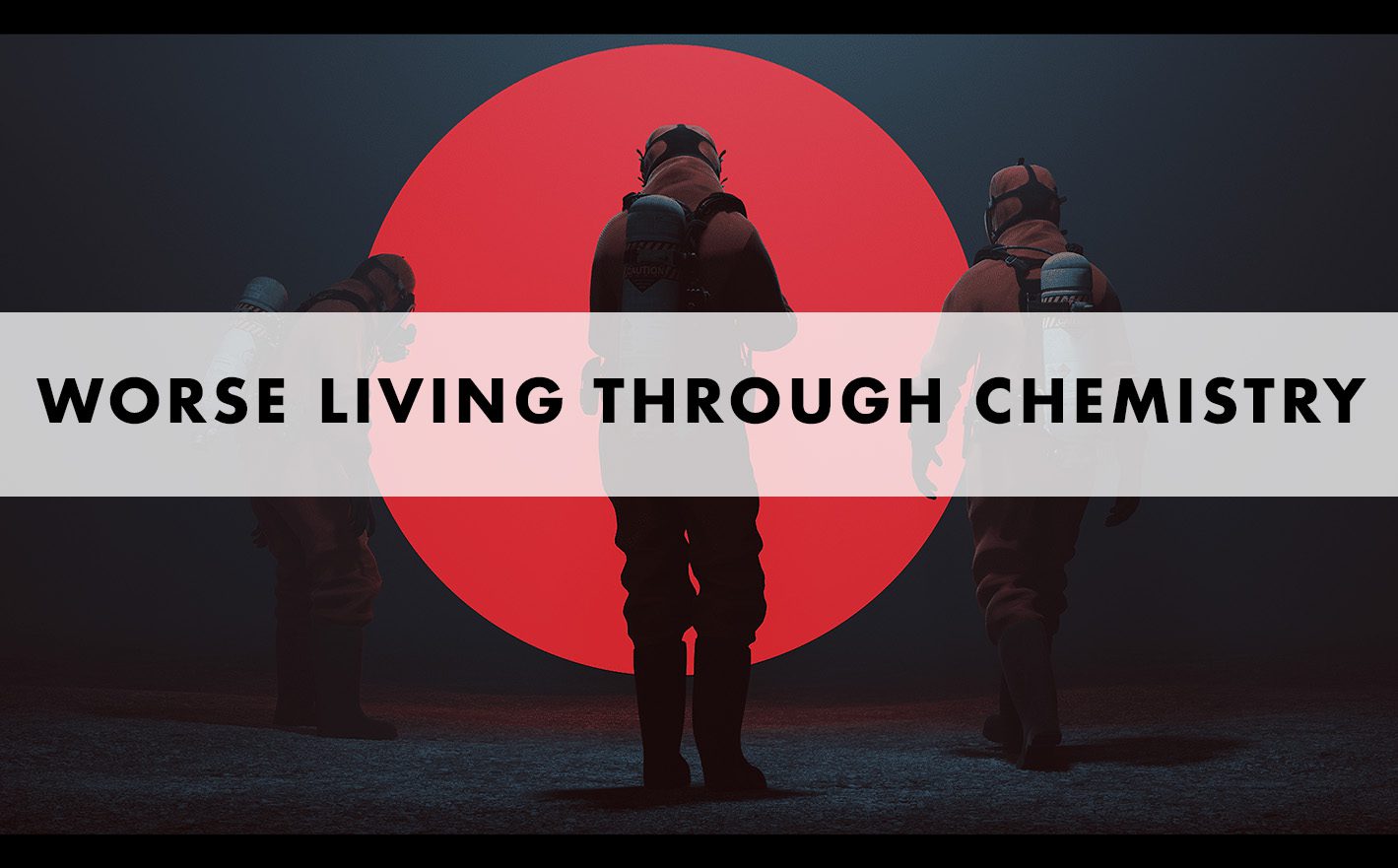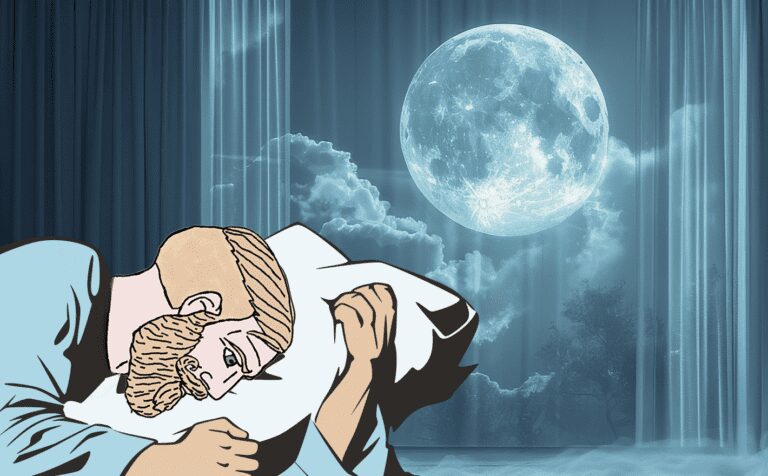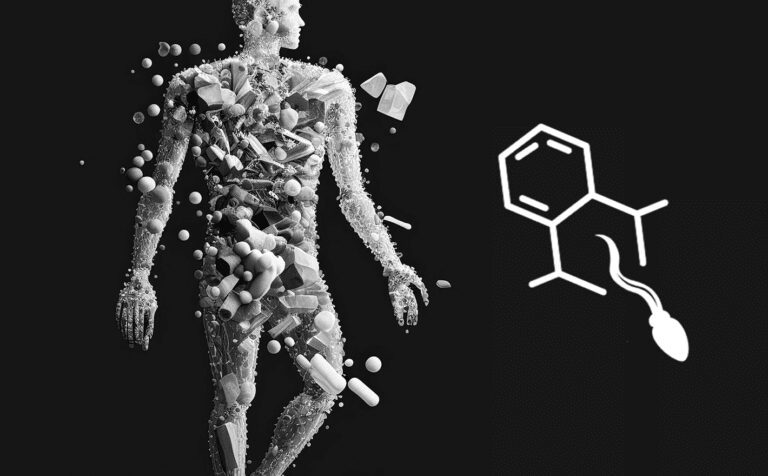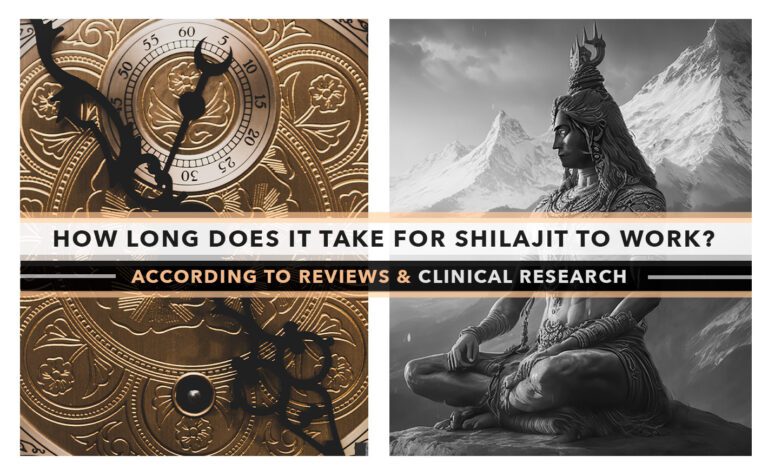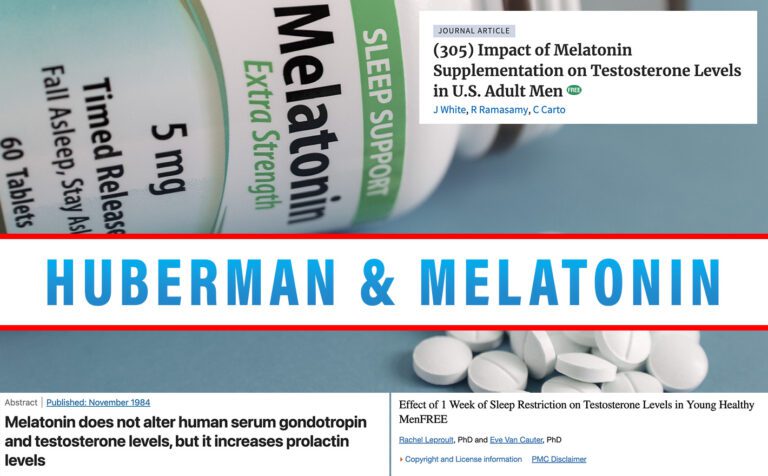Last week on Tales of the T, I shared a video from Dr. Andrew Huberman’s podcast, and this week Huberman is making a return, but this time as a guest on the Joe Rogan podcast.
Dr. Huberman is a neurologist who has worked with a large number of athletes and has a keen interest in the psychological and neurological effects of testosterone.
We all know that testosterone tends to make you more motivated, confident, and assertive. Ask anyone who’s taken 200mg of Tongkat Ali for a few weeks. The mental effects of healthy T levels are obvious.
What’s not as obvious, however, is the exact way that this master androgen is able to achieve such effects. In this particularly fascinating clip, Dr. Huberman explains that, because of its ability to bind to androgen receptors on the amygdala, testosterone can reduce fear and pain, resulting in high effort activities, such as intense physical training, becoming less unpleasant and far more rewarding.
This makes quite a bit of sense considering how much testosterone and dopamine are linked. If you want to know what dopamine does, it’s all about the first two letters: ‘D’ and ‘O’. Much like testosterone, it’s about DOING. The two compounds work together and tend to reinforce one another in a variety of ways.
Want to learn more about our top selling Tongkat Ali Supplement? Check out these links:
Tongkat Ali Benefits for Males
Tongkat Ali Benefits for Females
In this fascinating interview (embedded at this end of this article), Dr. Huberman said the following about the effects of T on the personality:
“Testosterone has some very interesting effects on the brain. The major mental effect of testosterone is it makes effort feel good, and the reason it does it is that the amygdala, this fear center, this anxiety center in the brain, has testosterone receptors.”
He then goes on to describe how spikes in testosterone are necessary for a variety of male animals to endure the brutal process of battling for access to females during mating season:
“These surges in testosterone that happen seasonally in certain species like rams or even hamsters, the males will rip each others’ testicles off in order to fight for the right to mate, so males of a given species have to actually overcome the fear of pain and punishment, and the surge in testosterone is what causes the shift to the willingness to engage in battle…
Effort and leaning into pain and challenge actually has the effect of making the body feel soothed and good. It’s a drive, just like sex is a drive or drinking water when you’re thirsty is a drive. This stuff is all anchored deep within the hypothalamus. This isn’t a cognitive thing.”
So, in conclusion, Testosterone enables us to reframe challenging and even painful tasks by modulating the amygdala, reducing the fear and feelings of panic that might otherwise accompany intense situations.
Watch Dr. Huberman break it all down here:

